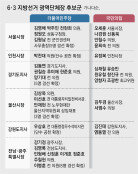Civic groups deliver 100 million won each to 4 slave laborers
Civic groups deliver 100 million won each to 4 slave laborers
Posted August. 14, 2023 08:10,
Updated August. 14, 2023 08:10
A South Korean civic group has raised and delivered 400 million won (about 300,000 U.S. dollars) to four victims of forced labor during Japan’s colonial rule of Korea, who have refused to receive compensation based on legal judgment under the ‘third-party compensation’ solution, saying the Japanese government and war criminal companies should apologize first.
The Korea-Japan Historical Justice and Peace Action, a coalition of more than 600 civic organizations nationwide, will hold a civic donation delivery ceremony on Monday at the Gwangju NGO Support Center in Jeon Il Building 245 in Gwangju. The coalition group donated 100 million won (75,000 dollars) each to the bereaved families of two surviving victims and two deceased victims on Saturday. Two surviving victims, Mr. Lee Chun-sik (103) and Ms. Yang Geum-deok (95), who refused third-party reparations, and the bereaved families of two victims who passed away after the legal victory (Ms. Park Hae-ok and Mr. Jeong Chang-hee) are the recipients. "This is an opportunity to gather surviving victims and their families for a donation ceremony and to reflect on the time over the years and encourage them," said Lee Guk-eon, director of the Citizens' Group against the Mobilization of Slave Laborers by Japanese Imperialists.
In 2018, 15 victims won final judgments in the lawsuit against Japanese companies in South Korea’s Supreme Court. Eleven of them said they would accept the South Korean government's ‘third-party compensation proposal.’ In June, civic organizations announced that they would collect donations on their own to pay compensation to the victims, saying that "The third-party settlement proposal, which lacks apologies from the Japanese government and companies, is not the right solution."
Some have argued that the organizations' donations to victims who opposed the government's proposal "could send a wrong signal to dozens of other victims of forced labor who are awaiting the Supreme Court's ruling." "If the organizations continue to pay compensations, the amount of compensation received by victims who rejected the government's proposal could be larger than the amount received by victims who immediately accepted the government's proposal," one lawyer said, adding, "This could undermine the government's proposal.”
yea@donga.com



![[단독]주한미군 무기 중동 차출 협의…핵심 ‘에이태큼스’ 거론](https://dimg.donga.com/c/138/175/90/1/wps/NEWS/IMAGE/2026/03/05/133466662.1.jpg)

![[김순덕 칼럼]‘삼권장악 대통령’으로 역사에 기록될 텐가](https://dimg.donga.com/c/138/175/90/1/wps/NEWS/IMAGE/2026/03/04/133466302.1.jpg)

